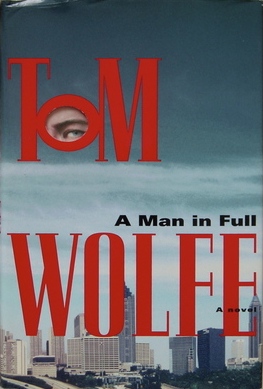corianderstem
Blue Crack Distributor
I knew you were a devil child!

I also know that you can't say Nineteen Eighty Four without seeming a dilettante
 we all have our guilty pleasures . . .
we all have our guilty pleasures . . . 
I also know that you can't say Nineteen Eighty Four without seeming a dilettante

 to the educuational value of free your mind
to the educuational value of free your mind 
I just learnt two new words today . . . dilettante and misanthrope . . .
to the educuational value of free your mind



I think I laughed really hard at least once per chapter. Who would have thought a book about Stoicism could be funny.

In the west, yes, but Orwell wrote a pretty good description of Stalinism (although it wasn't as much a prediction of, rather a direct inspiration from).Regarding 1984, Brave New World is closer to the truth. Orwell was probably a better writer but Huxley was the better predictor/prophet.
It is fun to raise peoples blood pressure, I wasn't judging you as much as I was alluding to what people think when you do answer Orwell.What a fucking misanthropic clown you are.
Seriously.
I'd rather seem a dilettante or have people such as yourself judge me by my book choices than be considered a complete and utter fucking asshole, which is a state of being you seem to relish with much zeal.
I have audio books on my MP3 player for car trips, and tedious work, but I also do much better with hard copy. I generally print and bind the relevant papers for a particular subject so I can always have them there.I use a laptop almost exclusively and still find it tough, don't know why. I think I'm just old school in this respect, heh.
I really wish I could get into audio books because I do drive quite a bit. I can handle comedy on there - really liked the Onion's book about the world on a drive to Ottawa once, and I also finished Colbert's book that way too. But with actual fiction I find it a bit hard to follow. I do have a short attention span though so that may be the problem.
Except for the soma, in that case it is totally inverted with state violence being exercised around the world in the War on Drugs.Regarding 1984, Brave New World is closer to the truth. Orwell was probably a better writer but Huxley was the better predictor/prophet.
Except for the soma, in that case it is totally inverted with state violence being exercised around the world in the War on Drugs.
I think that the stultifying effects of consumerism are adequately covered by the description of the culture, I took soma to be a mescaline-like drug, the description of tablets and effects (together with Island, and Huxley's later experimentation) lead me to take it literally. It isn't to say that I am incapable of finding metaphor, only that I don't necessarily see one there.
Although to get on a more literal Tom Cruise style bend, the medication of people from a young age (giving children methamphetamine and plonking them in front of a TV instead of letting them run around outside, taking prozac for ennui etc.), could be analogous.
I know that my own capacity for concentration drops when I don't take the opportunity to read frequently, reading must have benefits for the mind.Even if it wasn't intended as metaphor, I think I would credit Huxley with being accurate in a, well, emblematic or allegorical sense.
Earlier on, you implied some people's choices of reading material were motivated by a desire to show off that they are 'well-read', intelligent, or whatever - but the funny thing is, what worries me much, much, more than that is the complete lack of interest in any reading in today's world. One or two of my friends do not read AT ALL, apart from perhaps the sports pages of newspapers, or things they are required to read for work.


I think the favorite books are the ones that stick with you long after you've put them down
I like a lot of John Irving when I'm reading him, but other than Prayer for Owen Meany and Cider House Rules, none of them stuck with me. I didn't much like 1984. I did like Animal Farm. I've certainly enjoyed my share of Agatha Christie, but I can't tell the books apart. Same with Dick Francis, although I love his books and if you give me a couple I haven't read, they will go right to the top of my reading list. I find that my list of favorite books is nothing like my list of favorite authors. Maybe three of the authors of the books I chose would also make it to my favorite author list. I think the favorite books are the ones that stick with you long after you've put them down and the favorite authors are the ones you can't wait to pick up.
